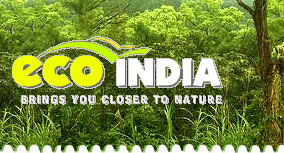
What does Ecosystem stand for?
Ecological system or ecosystem is an open space built by physical and biological components of an environment. Ecosystem is result of an active interaction between living and non-living components. Ecosystem is where community of plants, animals and their environment function as a whole, and relationship between organism and environment thrives blissfully.
Ecosystem and its types
Ecosystems differ in their size and types. Earth itself is an immense ecosystem. Likewise there can be an ecosystem in a sea, forest, river and even in a small pond, as ecosystem is where organism and environment meets together. Categorised by their nature, there are mainly four types of ecosystem.
Aquatic Ecosystem: located in water area, aquatic ecosystem can be of two types: marine ecosystem and freshwater ecosystem. Marine ecosystem contains 97% of all water of the earth, while freshwater ecosystem has more than 40% of all species of fishes. Some very important functions which Aquatic ecosystem disposes are purifying water, sheltering wild animals and recharging ground water.
Arctic Tundra: Arctic Tundra has the coldest ecosystem on the earth. The treeless plain, Arctic Tundra are desert like plains and dotted with ponds. Located far in the north of Alaska, Greenland, Russia, Canada and Europe, Arctic Tundra is inhabited by mammals like, Arctic foxes, Arctic hares, Polar bears, Musk oxen and porcupine; birds like Snowy owls, Falcons, Snow geese, Snow buntings, Tundra swans and Gulls and fishes like cod and salmon.
Boreal Forest: Located between between the Arctic Tundra in the north and steppes and hardwood forests in the south, Boreal forests are vegetation zone surrounding northern hemisphere. Conifers like pine, larch, spruce and fir dominate the whole region inhabited by faunal species like bears, foxes, raccoons, owls, eagles, wolves and lynxes.
Urban ecosystem: urban ecosystem consists of people along with living and non-living things, and the space constructed by them. In an urban system, ecological factors like plants, soil, animals, etc are affected by human. Likewise human decisions are affected by various ecological factors, for example where parks, schools and buildings have to be made.
Ecological imbalance: imperiling the whole Ecosystem
With the increased industrialisation and scientific approach to our life, the natural resources and rich natural heritage which were being preserved for centuries have begun dwindling greatly. Any kind of imbalance in nature results into severe danger to our ecosystem.
Its treatment with nature has posed today many serious challenges and problems like climate change, vector-borne disease, decay in wildlife and its resources and food and water shortage. Exploitation of natural resources prevalent all over the world has erupted into severe ecological degradation, which is definitely the biggest threat to proper functioning of our ecosystem.
Need to restore and conserve the ecosystem
Restoring the ecosystem by establishing the finer balance between organism and environment is the best way that being a responsible human we can do. Until and unless, the steps to preserve the decaying charm of our ecosystem are not initiated, our ecosystem is not going to support us having a better and healthy environment.
There is stark need today to assist nature by not disturbing its integrity, and help it gaining its lost delicacy. By protecting our native natural resources like wildlife, rivers, forests, etc, one can contribute greatly in preservation of our ecosystem. The radical changes have to be born in our thoughts to save and accumulate the natural resources – the very root of our life.






